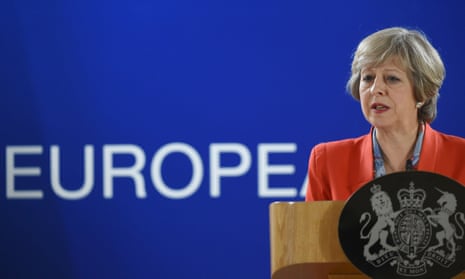Asian stocks and the pound sagged again on Tuesday as investors waited for Theresa May to lay out plans for Britain exit the European Union and potentially the single market.
Britain would not seek a deal that left it “half in, half out” of the EU, the prime minister’s office said as she prepared to outline her 12 priorities for Brexit talks with the bloc.
Priorities were expected to include leaving the EU’s single market and regaining full control of Britain’s borders, reinforcing fears of a “hard Brexit” that have pushed the pound to some of the lowest levels against the US dollar in more than three decades and weighed on other riskier assets such as stocks.
Growing uncertainty over the policies of Donald Trump have also hurt equities, which had rallied in many parts of the world thanks to speculation that the US president-elect would enact bold stimulus and reflationary measures once in office.
MSCI’s broadest index of Asia-Pacific shares outside Japan lost 0.1%, while Japan’s Nikkei brushed a five-week low and was down 0.4% at one point.
“Europe is going to be dominating the headlines today and the focus is justifiably on May’s speech, and also on the interviews that Trump gave to European newspapers,” said Stefan Worrall, director of Japan equity sales at Credit Suisse in Tokyo.
Sterling hovered around $1.2050, in striking distance of the previous day’s $1.1983, which was its lowest point since 7 October.
The weaker pound helped take some pressure off of the greenback, which has been burdened by investor uncertainty over whether the incoming Trump administration would actually be able to implement effective policies.
The euro was little changed at $1.0604 after dipping about 0.4% overnight.
The yen benefited from its safe-haven status, holding its gains versus against the dollar, euro and sterling.
The Australian dollar, sensitive to shifts in risk sentiment, was down 0.1% at $0.7472. Higher iron ore prices had taken the Aussie to a one-month high of $0.7519 last week.
Gold was helped by the heightened risk aversion stemming from Brexit and uncertainty over Trump’s plans. Spot gold was $1,203.93 an ounce after climbing to $1,207.86 overnight, its highest since late November.
